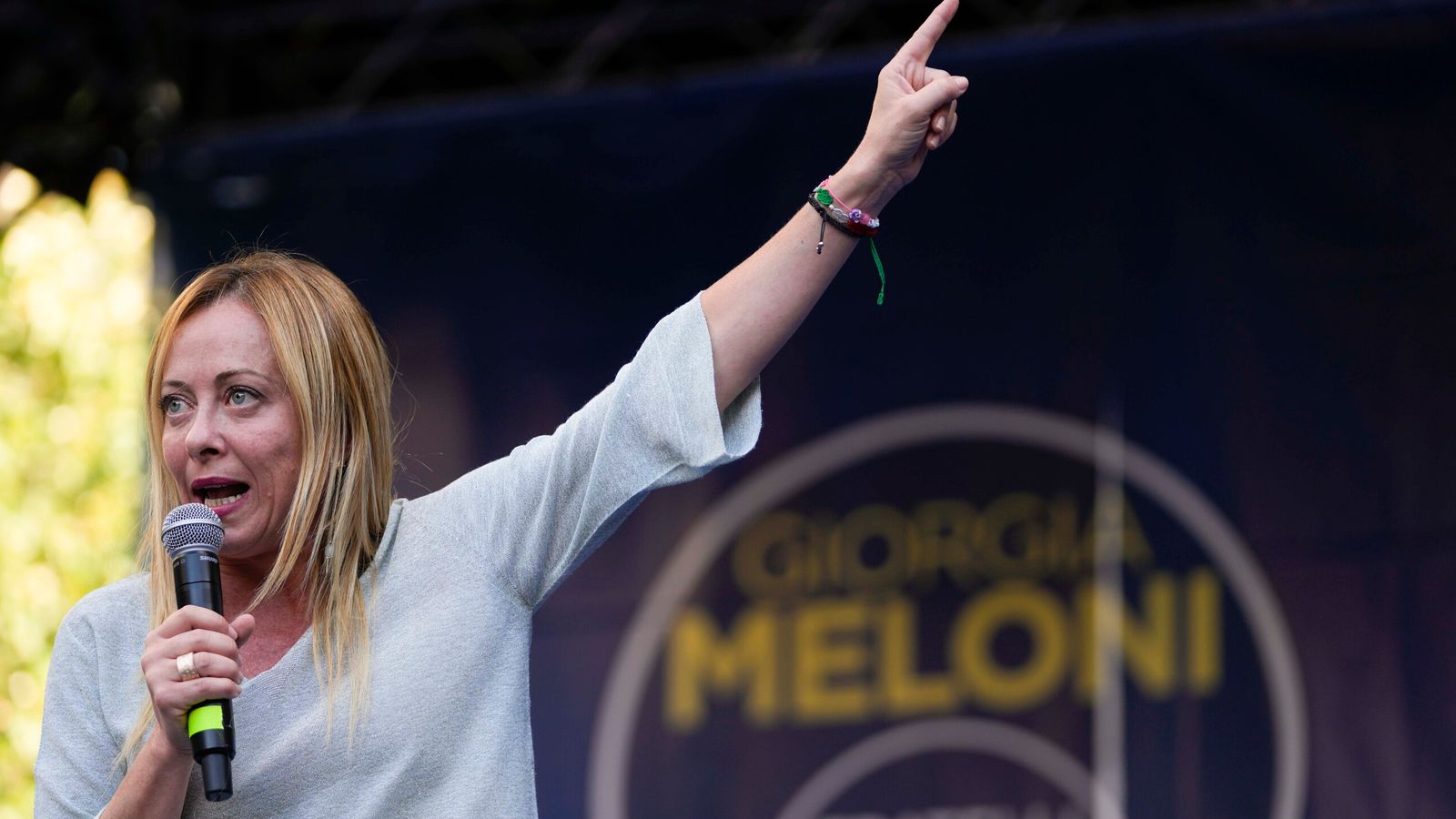Voting has closed in Italy, with an exit poll indicating that the far-right leader of a party with neo-fascist roots will become the country’s first female prime minister.
Giorgia Meloni’s Brothers of Italy party won just over 4% in the 2018 election but an exit poll indicated it would win 22 to 26% of the vote.
Overall the right-wing coalition is thought to have won between 41-45% of the vote, according to a Consorzio Opinio Italia poll for Rai.
The closest contender, the centre-left alliance of former Democratic Party Premier Enrico Letta, which apparently garnered 29.5% pf the vote.
Sunday’s election could move the country’s politics sharply to the right at a critical time on the European continent, as countries struggle with energy prices and the war in Ukraine continues.
If she takes power, Ms Meloni would be both Italy’s first female prime minister and the first far-right politician to become head of government in a major eurozone economy.
The election came six months early after Mario Draghi’s pandemic unity government collapsed in late July.
Italy heads to the polls as country expected to elect first far-right female prime minister
Italy is voting and could have its first woman PM – here’s what happens next and when to expect the first results
Dangerous far-right demagogue or free-thinking radical? Giorgia Meloni on verge of becoming Italy’s first female prime minister
Read more:
Who is Giorgia Meloni?
Ms Meloni is part of a right-wing alliance with anti-migrant League leader Matteo Salvini and Silvio Berlusconi, the three-time premier who heads the Forza Italia party he created three decades ago.
“Centre-right clearly ahead both in the lower house and the Senate! It’ll be a long night but even now I want to say thanks,” Mr Salvini said on Twitter.
It could be a while until it is known officially who the next prime minister is, with the process to form a coalition expected to last until at least mid-October.
Early voters in Rome expressed concerns about Italian politics as a whole.
“I hope we’ll see honest people, and this is very difficult nowadays,” Adriana Gherdo said at a polling station in the city.
The election in the eurozone’s third-biggest economy will be closely watched in Europe, given Ms Meloni’s criticism of “Brussels bureaucrats” and her ties to other right-wing leaders.
She recently defended Hungary’s Viktor Orban after the European Commission recommended suspending billions of euros in funding to Hungary over concerns about democratic backsliding and the possible mismanagement of EU money.







